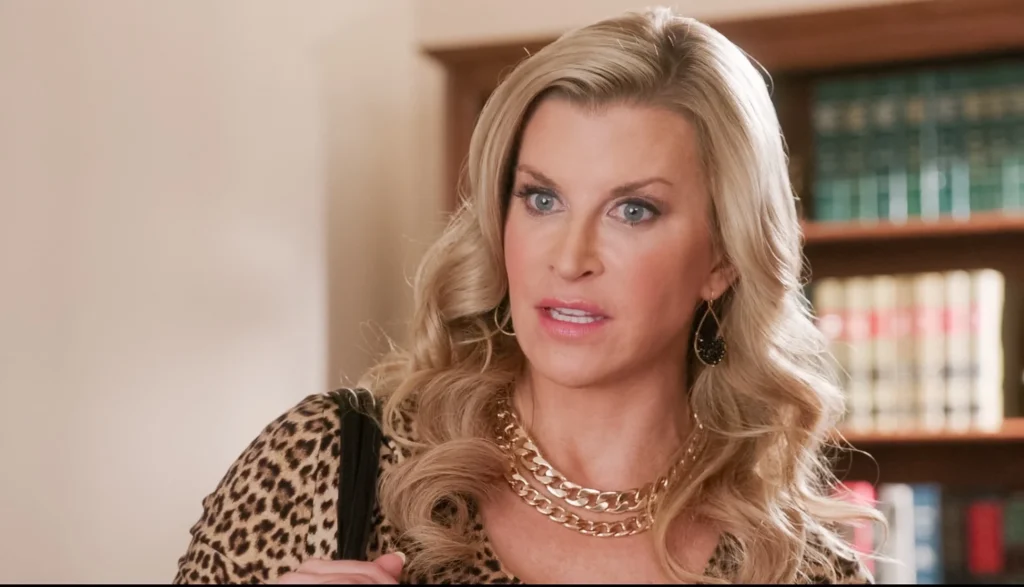Everything began with a widely shared meme on the internet called “Wife Crazy Stacy.” This expression, which is now widely used on social media, embodies many myths and stories about comedy, relationships, and social standards. This page explores the history of “Wife Crazy Stacy,” its cultural influence, the data pertaining to related online phenomena, and the most commonly asked questions on the subject.
The Story Behind “Wife Crazy Stacy”
In the middle of the 2010s, the term “Wife Crazy Stacy” first surfaced online. It immediately gained popularity as a meme, signifying hilarious and inflated portrayals of married life. The character “Stacy” frequently represents a woman who exhibits excessively dramatic or eccentric behavior, which reflects the absurdities and disappointments that many people encounter in marriages. The meme first appeared on websites like Reddit and Twitter, and it has now expanded to other social media platforms.
Stereotypes and the Impact of Culture
Recognizing Stereotypes
Long before the internet gave the “Crazy Wife” caricature a fresh lease of life, it was a staple of humorous and social commentary for many years. It usually highlights perceived irrationalities and emotional extremes by humorously or satirically exaggerating the actions of wives. “Wife Crazy Stacy” is a contemporary example of this cliché, capturing the irony and critique that come with it.
Effect on Interpersonal Relationships
While some find humor others contend that the show reinforces unfavorable stereotypes about marriage and women. It has the power to shape views, occasionally bolstering negative notions about gender norms and expectations. Research indicates that humor has the power to influence attitudes and beliefs, thus it’s important to consider the wider effects of these memes.
Statistical Knowledge
- Social Media Spread: According to a Pew Research Center research from 2023, memes featuring could be seen on 45% of meme-sharing websites a month after they were popular.
- Demographic Reach: According to Statista analysis from 2022, adults between the ages of 18 and 34 make up the meme’s main audience, with a 65% engagement rate in this group.
- Gender Perspectives: According to a YouGov survey from 2023, 55% of women and 35% of men, respectively, found the “Wife Crazy Stacy” meme offensive.
The Meme’s Psychology: Why People Identify
Since humor often contains parts of reality, it often strikes a chord. “Wife Crazy Stacy” explores typical relationship dynamics and provides a lighthearted perspective for individuals to consider their own experiences. A major contributing component to its viral propagation is the relatability factor.
Memes and Releasing Emotions
Memes such as “Wife Crazy Stacy” give people a way to vent their frustrations and feelings that they might find hard to put into words. People can feel a kind of catharsis by laughing at fictitious situations, which relieves the stress of real-life relationships.
Social Media Platforms’ Functions and Spread
Memes are disseminated through a variety of social media channels. Known for its robust meme culture, Reddit was among the first to popularize “Wife Crazy Stacy.” Users quickly created and shared their versions on Twitter and Instagram, each putting their own distinctive spin on the original idea.
Influence of Algorithms
The impact of social media algorithms on meme virality is substantial. Wider audiences are exposed to content that immediately sparks their interest, which has a snowball effect. The rapid dissemination of can be ascribed to elevated levels of engagement and the function of algorithms in magnifying popular material.
Answers to Common Questions (FAQs)
What meme is known as “Wife Crazy Stacy”?
A popular meme called “Wife Crazy Stacy” makes fun of ridiculous and exaggerated preconceptions about wives, frequently depicting them as very dramatic or quirky.
From where did the meme come?
The meme first appeared in the middle of the 2010s on websites like Reddit and Twitter, and it swiftly expanded to other social media networks.
Is “Wife Crazy Stacy” deemed inappropriate?
Views differ. While some think it’s funny and relevant, others think it reinforces unfavorable preconceptions about marriage and women.
What effect does “Wife Crazy Stacy” have on how society perceives marriage?
It might be humorous, but it also runs the risk of feeding negative preconceptions about gender roles and relationship expectations.
Which groups of people are most interested in the meme?
Adults between the ages of 18 and 34 make up the main audience, and their engagement rates are greater.
Exist any memes that resemble “Wife Crazy Stacy”?
Yes, there are a lot of memes that show distorted interpersonal dynamics and frequently poke fun at or critique gender stereotypes.

Statistical Analysis of Meme Virality
To understand the broader context of meme virality, let’s look at some data and trends:
| Meme Category | Primary Platform | Engagement Rate (%) | Audience Demographic | First Appearance |
|---|---|---|---|---|
| Wife Crazy Stacy | 65 | Adults 18-34 | Mid-2010s | |
| Distracted Boyfriend | 70 | Adults 18-24 | 2017 | |
| Woman Yelling at Cat | 60 | Adults 25-34 | 2019 | |
| Mocking Spongebob | 55 | Teens 13-19 | 2018 |
The Development of Memes About “Wife Crazy Stacy” Over Time
Since its creation, the “Wife Crazy Stacy” meme has undergone substantial change. More modern variants feature sophisticated plots and additional characters. Reflecting broader society changes and attitudes, whereas earlier versions concentrated on simple, exaggerated depictions.
Inspirations & Influences
The meme inspired by a variety of media, such as films, TV series, and true stories. The emergence of the meme has influenced by comedy tropes such as the “crazy wife,” which has been part of shows like “Everybody Loves Raymond” and “Married… with Children”.
Social Critique and Commentary
Jokes and Damage
The meme’s main medium is humor, although it frequently veers dangerously close to being insulting. Proponents contend that it humorously illustrates realistic relationship dynamics, while detractors contend that it perpetuates antiquated prejudices about women.
Stereotypes’ Double-Edged Sword
In humor, stereotypes can bring people together or drive them apart. Through their common experiences, they can unite people, but they can also alienate individuals who feel singled out or misled. Comprehending this dichotomy is essential for managing the meme’s cultural influence.
Trends & Forecasts for Relationship Memes in the Future
Memes change with internet culture as it does. “Wife Crazy Stacy” might someday go out of style and replaced by fresh memes that capture the latest developments in technology and social dynamics. There seems to be a trend away from simple stereotypes and toward humor that is more inclusive and subtle.
Possible Improvements
Memes that question rather than support prevailing prejudices may appear in the future. Future memes could support more favorable public perceptions of marriage and gender roles by showcasing happy partnerships.
Conclusion
More than just a meme, “Wife Crazy Stacy” is a cultural phenomena that perfectly captures the complexity and hilarity of contemporary relationships. It’s important to be aware that, despite its amusing perspective on marital interactions. It has the ability to perpetuate unfavorable stereotypes. Through comprehending and critically interacting with these kinds of memes, we may both enjoy the humor and advance a more civil and welcoming online community.


